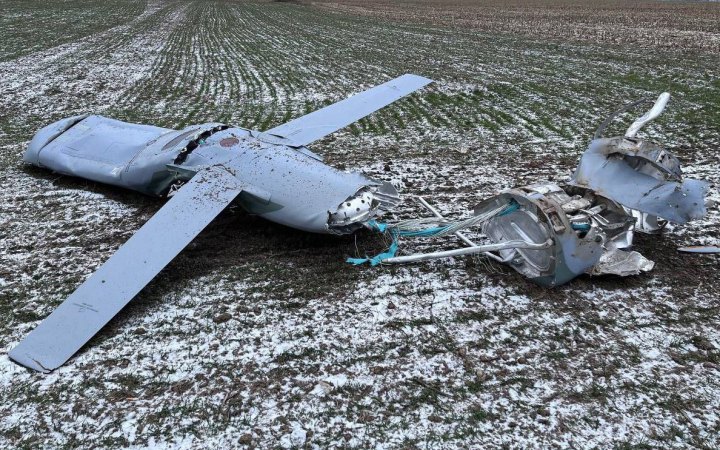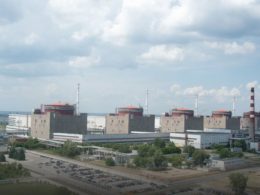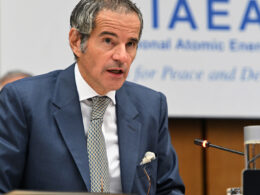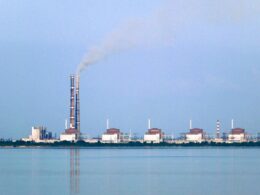Ukraine's Main Intelligence Directorate (HUR) has reported that Russian occupying forces once again orchestrated an attack on the Zaporizhzhia Nuclear Power Plant (ZNPP) using FPV drones on 9 April to blame Ukraine.
Andrii Yusov, a representative of the Ukrainian Ministry of Defense's Main Intelligence Directorate, stated during a national telethon that Russia, as the aggressor state, had illegally seized the nuclear facility early in the full-scale invasion in 2022 and continues to hold it unlawfully. The Russian forces have deployed military personnel and equipment, mined the station's territory, and regularly launched UAVs, including strike drones and kamikaze drones, as well as carried out mortar and MLRS shelling.
"Today, [Russia] decided to use FPV drones to stage the bombardment supposedly from the Ukrainian side. Ukraine's position is clear, concise, and unambiguous – we do not carry out any military actions or provocations against nuclear facilities. The aggressor must leave the nuclear power plant," Yusov said.
Earlier on the same day, the International Atomic Energy Agency (IAEA) reported a drone attack on a training center located on the premises of the Russian-occupied Zaporizhzhia Nuclear Power Plant. According to IAEA Director-General Rafael Grossi,
"The report of an explosion is consistent with the observations of the IAEA team. While there is no direct threat to nuclear safety this time, the latest incident once again highlights the extremely serious situation."
It's worth noting that on 4 April, the Zaporizhzhia Nuclear Power Plant was once again left with only one power line after shelling. Previously, the plant had been reconnected to a second power line after repairs due to damage caused by Russian occupiers. The facility had been operating on a single power line since 20 February.
The Zaporizhzhia Nuclear Power Plant (ZNPP), Europe's largest nuclear facility, has been a focal point of concern since the Russian invasion of Ukraine in 2022. Russian forces seized control of the plant early in the conflict, and since then, the facility has experienced multiple blackouts and security incidents, raising fears of a potential nuclear disaster.
One significant issue has been the repeated blackouts at the plant, with eight complete blackouts and one partial outage reported since the start of the invasion. These blackouts pose a severe threat to nuclear and radiation safety, as the plant requires external power for critical cooling systems. Ukrainian staff at the plant have been credited with preventing accidents during these blackouts, but the situation remains precarious.
Russian forces have also used the ZNPP as a military base, deploying armored vehicles and personnel within the facility. This militarization of the nuclear plant has been criticized internationally, as it increases the risk of a technological disaster and radioactive contamination. The International Atomic Energy Agency (IAEA) has sought expanded access to the plant to monitor its safety, but Russia has restricted access to critical areas, including reactor halls.
The ongoing situation at the Zaporizhzhia Nuclear Power Plant highlights the broader risks and challenges posed by Russia's war against Ukraine, especially regarding nuclear safety and security. The plant's repeated blackouts, militarization, and restricted access to international monitors underscore the potential for a nuclear accident amid the war. The continued military presence and actions at the plant not only jeopardize the immediate region but also have broader implications for global nuclear safety standards and the international community's ability to respond to nuclear emergencies.
Read more about the direct hits on the ZNPP reactor, the use of the ZNPP as a military base, and the IAEA's request for expanded access.
Related:





